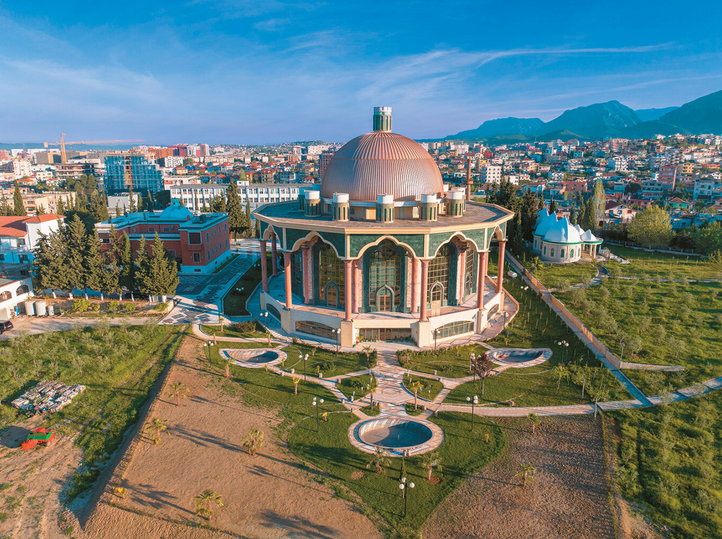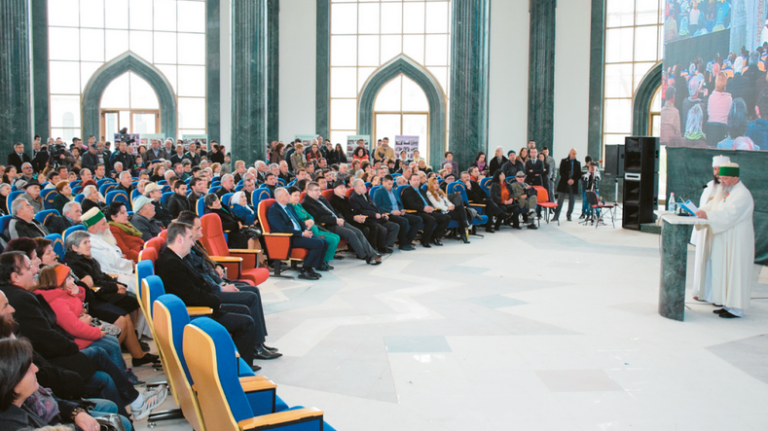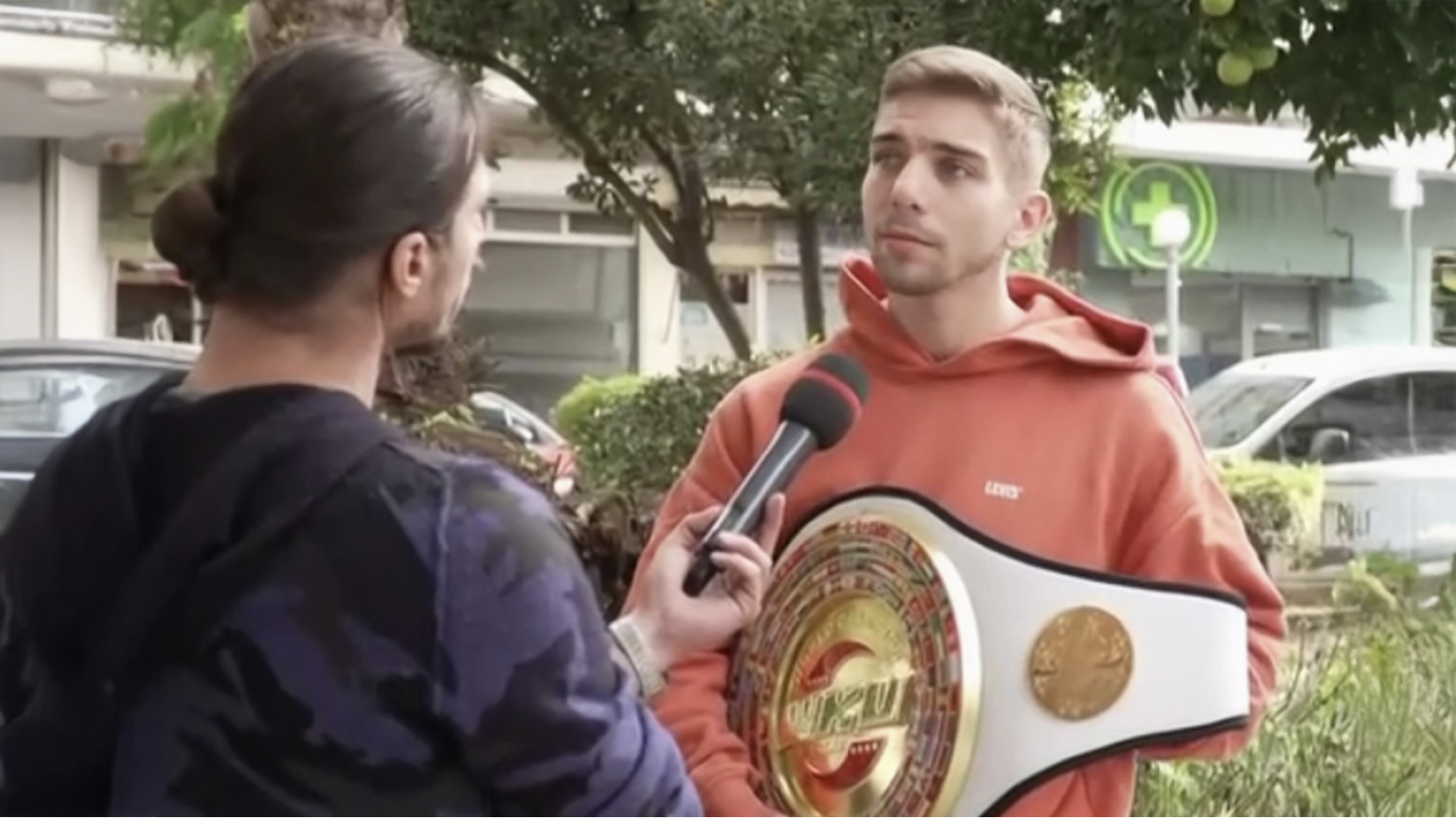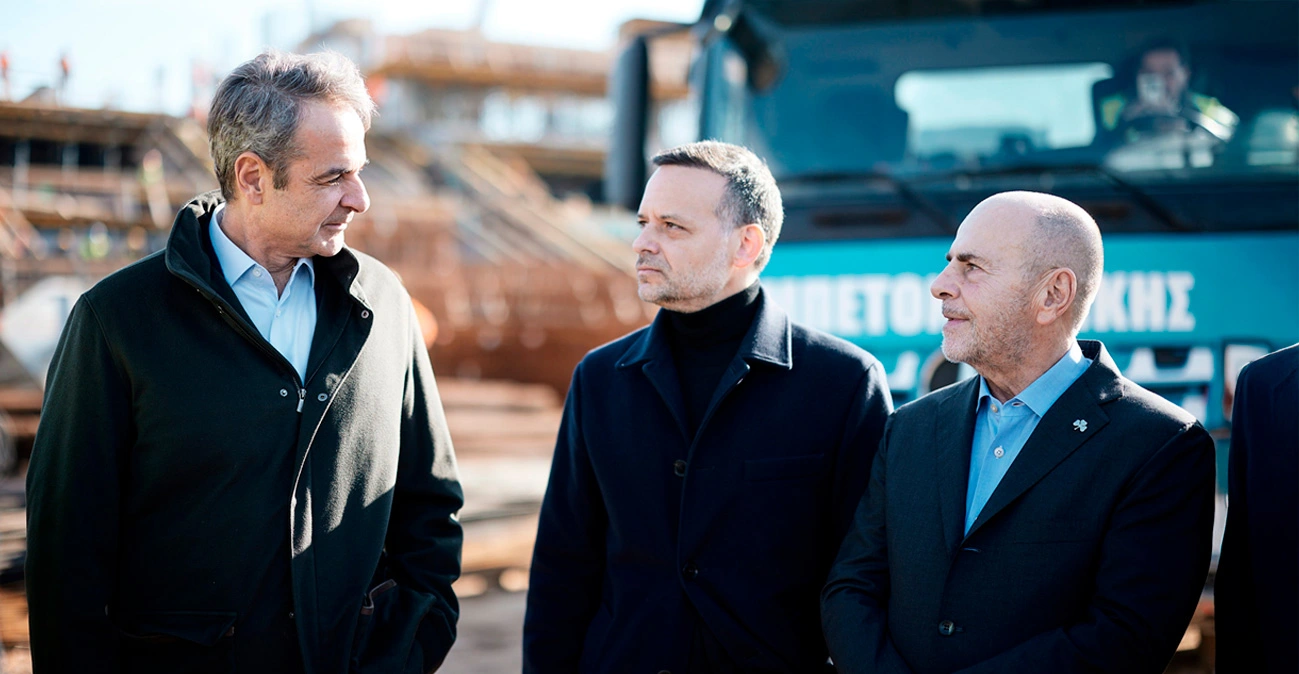The vision of Edi Rama to create a “Vatican for Bektashi” in Tirana, as well as his ambition to establish the smallest state within a state in the world, is likely part of a broader political strategy, if nothing else, because Rama is above all a politician. He is neither a late apostle of religious tolerance who has recently experienced some kind of inspiration, nor does he speak abstractly on behalf of UNESCO or any international organization with a related mission – although the announcement of his intentions for the “Bektashi Vatican” was made during a speech to the United Nations.
Suddenly, the international public is reading extensive articles, even in media with universal reach like the “New York Times,” about the bold future endeavor of the Albanian Prime Minister. Naturally, the question arises: “Who are these Bektashi who need their own Vatican – especially in Albania?” However, at the same time, Rama is likely calculating the expected political benefits for his country, as well as the individual ones for himself. Because beyond the religious and theological aspect of the Bektashi Order, that is, the type of faith and worship practices they follow, the differentiation of Bektashism from the central core of Islamism, etc., the major concern for Edi Rama primarily lies in how this particular project will benefit his premiership, how it will increase his chances of re-election in 2025, and so on. From this perspective, one could initially note that the Bektashi movement has traditionally been intertwined with Albania’s struggle for independence, with Albanian patriotism, or even, at times, with the nationalism of Albanians.

A Mixture of Religions
Bektashism is a version of a “syncretic” religion, that is, a faith in which concepts and practices from various other religions (Islam, Christianity – Orthodox and Catholic), along with occult tendencies, are amalgamated, along with a methodology of secret organization that refers to secret brotherhoods like Freemasonry. Among the Bektashi, for instance, the consumption of pork is allowed, wine is used in the corresponding communion ceremony, while their perceptions of female decorum and modesty do not include the draconian oppression of the burqa and similar extremes. Therefore, solely due to its open and tolerant nature, Bektashism is particularly suited for exploitation by the power of a pragmatic politician like Rama.
The Bektashi can be used as a bonding agent for overcoming the contradictions within Albanian society with the prospect of its westernization. From this point of view, Edi Rama’s logic could be condensed into the axiom “better Bektashism than fanatical Islamism.” Given that approximately 46% of Albanians identify as Muslims, Rama, by promoting Bektashism, is likely trying to prevent nearly half of his compatriots from sliding towards the hardcore, regressive, and fiercely anti-Western Islam.
And although the Bektashi sect is officially followed by only 4.81% of Albanians, its real influence in society is considered to be manifold: the Bektashi hold positions of critical importance in the fields of economy, politics, and media. Furthermore, regarding the formation of Albanian foreign policy, the promotion of Bektashism opens a window for rapprochement even with Israel.
Tourism Business
Another significant aspect of the matter is that at times, particularly when Albania had become a “people’s democracy” (i.e., one of the Balkan satellites of Stalinist Soviet Union), when any religious activity was initially under disfavor and ultimately under relentless persecution from the communist regime, the highest clergy of the Bektashi Order had sought refuge in the USA, where it developed a noteworthy – albeit on a smaller scale – network of influence.
However, no one can ignore the tangible and far from metaphysical aspect of Muslim tourism: if Edi Rama indeed proceeds to create, in a way, a Bektashi Mecca in the outskirts of Tirana, the faithful of this doctrine around the world will sooner or later flock to this worship center. The Bektashi worldwide number millions of adherents (relevant estimates vary widely, from 5 to 20 million). Only in Turkey, for instance, their population is estimated to exceed 12.5 million people. Regardless of the fact that currently, reactions against the idea of the Albanian leader are strong from the Turkish Bektashi, a city-religious state as envisioned by Rama could evolve into the strongest tourist attraction in Albania, with all that this implies for the influx of foreign currency into a historically isolated country.
In general, the challenge posed by delving into the Bektashi branch of Islam arises automatically in various and different fields: on the one hand, in exploring the peculiar religious identity and historical trajectory of the Bektashi – particularly those of Albania. And on the other hand, in assessing their real power today, both inside and outside Albania, considering that evaluating their true strength in the contemporary landscape will indicate, directly or indirectly, the answer to the initial question “where is Edi Rama going with the Bektashi?”
All the more so if we take into account that Rama does not even belong, in terms of his religion, to the Bektashi. Unlike one of his predecessors, the Bektashi former Prime Minister and President of Albania Ilir Meta.

Greeks Bektashi
Specifically concerning Greece, approximately 3,500 followers of this subdivision of Islam (or simply a sect, according to the hardline “orthodox” Muslims) are classified as Bektashi. The Greek followers of Bektashism predominantly reside almost exclusively in Thrace, in an area centered around the village of Roussa in Evros, where one of the most emblematic landmarks for the Bektashi of the Balkans is located: the “tekke” (a place for religious gatherings) of Sejit Ali Sultan, a Muslim monument from 1402.
The Bektashi of Greece claim recognition as an autonomous religious group completely independent from the Greek Muslim community. Their positions were even presented and systematized in a scientific manner in November 2023, following a three-day international symposium titled “Bektashi and Alevi in the Balkans and Anatolia,” organized in Kavala by the Center for Research on Cultural and Ethnological Affiliations MOHA (Motivation of Heritage Affinities Research Center).
However, the relationship between Greece and the Bektashi order dates back at least to the 18th-19th century, as both Ali Pasha Tepelena had close ties with the Bektashi and the fiery precursor of the Greek Revolution of 1821, Rigas Feraios.
Flirting with Israel
Edi Rama presented his plan for a “Bektashi Vatican” before the UN General Assembly in a celebratory session honoring himself. The UN awarded Rama the Ecumenical Leadership award “for the exemplary way he leads the effort towards achieving unity among the Balkan peoples,” etc. However, the element that holds particular significance for interpreting the entire affair is that Edi Rama’s recognition is due to an initiative of the Combat Antisemitism Movement (CAM).
Rama’s narrative is that Albania has always opened its arms to every persecuted individual, including Jews during World War II or even Afghans fleeing the Taliban. Albania’s modern national heroine is the Nobel Peace Prize laureate Mother Teresa, a global symbol of humanity and altruism, whose name has been given, in honor, to squares, hospitals, and even Tirana’s international airport.
The Bektashi themselves are, after all, a characteristic example of a persecuted group. Before being targeted by the communists, particularly after 1944 but primarily by Enver Hoxha in 1967, when atheism was imposed and all religions were ostracized, the Bektashi had been fiercely hunted by the Young Turks of Kemal Atatürk.
Transitioning to the US and deciding to make a shocking revelation of his plans, apart from the UN, Edi Rama also spoke to the “New York Times.” He explained, among other things, that “the goal of the new state is to promote a tolerant version of Islam, of which Albania is proud. And we must take care of this treasure, as freedom of religion is something we can never take for granted. Because we should not allow the stigma of extreme Islamists to define the followers of Islam in general.”
In the same interview, Rama mentioned that the “Vatican of the Bektashi” will be created in the western part of Tirana, in an area where there is currently no urban development, covering a total area equivalent to 1/4 of the real Vatican (0.12 sq. km). It will be called the “Independent State of the Bektashi Order,” and as soon as it begins to be recognized by the international community (if and when that happens), it will snatch the title of the smallest independent state in the world from the Vatican. Consequently, access to the state will require special border passport checks, visitor and residency permits, etc.
Edi Rama emphasizes that the plan to build the sacred city of the Bektashi around Tirana was highly confidential and until recently he had not shared it even with his closest collaborators. Rama admits that he has not even informed Albania’s NATO allies of his intentions, but he expresses optimism that his “Vatican” will receive the international respect and support it deserves. Of course, before construction work begins, Rama must secure the relevant approval of his plan from the Albanian Parliament, to which he will have previously submitted a comprehensive legal framework for the future independent Bektashi state.
The Albanian Pope
The seat of the Bektashi “Pope” and governor is intended for the current spiritual leader of global Bektashism, His Beatitude Haxhi Dede “Baba” Monti, a former officer of the Albanian army, aged 65, known as Edmond Brahimaj, who announces that “all our decisions will be made with love and kindness. I will not be a dictator; after all, the supreme power in our city will be that of God. He is the only one who never errs.” Baba Monti, as befits his supreme clerical rank, is patient – hence he describes fanatical Islamists as “just cowboys.”
Regarding the internal composition of the holy city of the Bektashi, Edi Rama has imagined that there will be a large “tekke” with a dome for religious gatherings and collective prayer, a museum with artifacts from the historical journey of the Bektashi order from its founding in the 13th century in Turkey to the present, a medical center, a building for archives, offices for the administrative staff of Baba Monti, etc.

The Turks React
The enthusiasm of Edi Rama, Baba Monti, and possibly the Albanian Bektashi regarding the prospect of establishing an independent religious state does not seem to be shared necessarily by the rest of the Muslim world, particularly the Turks. On the contrary, Rama’s initiative is likely to jeopardize the strong bonds of friendship he has with Recep Tayyip Erdoğan, one of the most devoted supporters of a strict conservative interpretation of Islam and its accompanying customs.
Indicative of the coldness with which the Turks received Rama’s surprise is the comment from Zeynel Abidin Koc, president of the Alevi Bektashi Brotherhood of Turkey: “As Alevi Bektashis living in Turkey, we stand firm in our position in favor of religious freedom. Bektashism is a belief system with Turkish roots. However, about 115,000 Bektashis live in Albania, which corresponds to 5% of the total population of Albania. Personally, I do not understand why such a state is necessary. Is Turkish Bektashism part of this plan or is it only for the Albanian Bektashis? We certainly do not approve of the existence of a state with a single religion.”
In summary, the position of the Turks—a country with an officially 99% Muslim population—regarding Rama’s “Bektashi Vatican” is that the sect of Alevi Bektashis has existed for about 800 years, moving between Turkey and the Balkans. Over time, and after many adventures, Albania became the center of Bektashism. However, the core teaching, the moral code—and inevitably their differentiation from the approach of “orthodox” Muslims—proclaims that there are no borders, encourages the independence of individuals, solidarity, and compassion towards the oppressed. Thus, a mono-religious state is incompatible with the unimpeded freedom that Bektashism represents.
Beyond this, if the Bektashis gain elevated status in Albania, it could serve as an example for their Turkish co-religionists, something that would be a completely undesirable development for the religious and political leadership of the country.
As for other Muslims, whether Shia or Sunni indiscriminately, thanks to Edi Rama’s inspiration, they have gained an additional reason to shun the Bektashis, as they have always done. The red flag of Albania, due to the “Bektashi Vatican,” will inevitably become a red rag for the fanatically devout of the Quran, from Iranians to jihadists. It goes without saying that religious differences are exacerbated or even derailed by the current explosive situation in the Middle East, with the bloody conflicts between Israelis and opposing forces sharing the same Muslim faith.
Mystical Islam
Nathalie Clayer, a university professor and researcher with authority in Turkish and Ottoman history, writes in an essay that “as a heterodox and syncretic form of Islam, Bektashism has managed to crystallize around the religious diversity it presented in contrast to Sunni Islam a cultural diversity and subsequently a political-national diversity in relation to the Ottoman authorities—indeed, in relation to the Ottomans or the Turks.”
Ms. Clayer has studied in depth the role of Bektashism in the context of Albania’s struggle for independence from the Ottoman Empire. She believes that in the early 20th century, the Bektashis aided the nationalist insurgents (çetës), particularly in the southern part of Albania, where there was a significant Bektashi presence due to the tekkes that had been built there many years before with the tolerance—or even direct support—of Ali Pasha, who was himself a Bektashi.
“Although it is impossible to generalize for all centers,” writes Nathalie Clayer (see the collective work “Bektashi Dervishes and the National Movement in Albania,” Ed. Isnafi), “we can, however, confirm that the vast majority of Bektashis sided with the nationalists between 1878 and 1912, and that they acted in favor of Albania’s autonomy. Albanian Bektashism, adopting nationalism in its doctrine and actively participating in the national liberation movement, experienced significant dissemination, which we do not observe in any of the other Muslim brotherhoods active on Albanian soil.”
Ms. Clayer also analyzes that “Bektashism is not a branch of Shia Islam, as has often been claimed, but a Sufi order (an Islamic mystical brotherhood). The founder and protector of the order was Haji Bektash (who died in 1270 AD in central Anatolia).”
Finally, the Islamic scholar and Turkologist Professor Eustratios Zeginis, in the introduction to the aforementioned volume, points out that “the spread of Islam in the Balkan region is mainly due to the Ottoman Turks. Until the end of the 15th century, their attacks and advances into the Balkans were continuous. This phase of Ottoman expansion into the Balkans is particularly significant because it is the period of Islamization, the establishment of the Janissary Corps, the devshirme (child levy), the displacement of large population groups, the rise of Islamic fanaticism, the economic exploitation of non-Muslim populations, and the shrinking or even destruction of Greek education, along with the countless other hardships endured by the enslaved Christian peoples of this region.”

Dervishes
The above shocking events stem from the religious policies of the Ottomans, intertwined with the peculiar yet effective actions of various dervish orders, foremost among them being the Bektashi. The background of Islam, which the dervish orders developed in the Balkan region, is Islamic mysticism, which was later enriched with many elements of Christian mysticism and popular beliefs that were remnants of ancient Greek mystical life. For this reason, Balkan Islam essentially takes on the character of “mystical Islam.”
Characteristic of the period during which Bektashism gained a foothold in Albania—the era of the French Revolution—is the prominent position given to certain liberal ideas, such as the brotherhood of humanity and the lesser importance attributed to the dogmas and rituals of religion in comparison to conduct. The Bektashis were fundamentally opposed to the rigid ideal of spreading Islam by the sword, which had mobilized the Janissaries during their conquests, and which is reflected in the conception of the early Bektashi saints as superhuman champions of faith.
Ask me anything
Explore related questions





